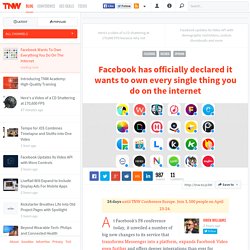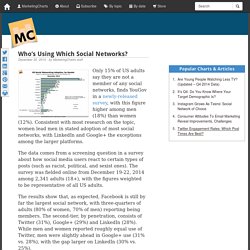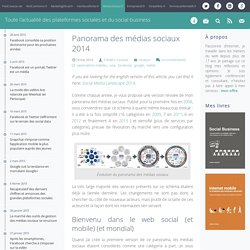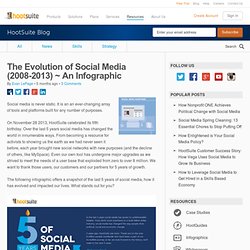

Chartoftheday_2570_Most_popular_social_apps_among_millennials_n.jpg (JPEG Image, 960 × 684 pixels) Voici ce que Facebook a annoncé aujourd'hui lors du F8. Pour connaître les nouveautés présentées par Facebook lors de la première journée de sa conférence annuelle destinée aux développeurs, c’est par ici.

D’entrée de jeu, Mark Zuckerberg a déclaré que l’événement allait mettre moins l’accent sur le dévoilement de nouveaux produits afin de privilégier le soutien de la communauté de développeurs. «Mettre les utilisateurs à l’avant-plan, leur donner plus d’options pour se connecter à la famille d’applications Facebook, et des prédictions sur l’avenir du partage» sont les principaux thèmes de cette édition selon l’entreprise. Voici un résumé des principales annonces d’aujourd’hui. Des changements liés à Messenger «Au cours des deux dernières années, nous avons transformé Messenger en un service qui peut vous aider à vous exprimer de nombreuses façons au-delà du simple message texte», a déclaré Zuckerberg.
Facebook Wants To Own Everything You Do On The Internet. At Facebook’s F8 conference today, it unveiled a number of big new changes to its service that transforms Messenger into a platform, expands Facebook Video even further and offers deeper integrations than ever for developers.

The changes are actually really cool and great news for developers — Facebook is finally turning Messenger into the hub for everything, like LINE and WeChat already did in Asia — but they also signal something much larger. Facebook is declaring that it effectively wants to own every single thing you do on the internet. Let’s quickly go through the things that Facebook is making inroads into controlling: Social networkingMessaging your friends (Messenger, WhatsApp)Messaging businesses (Messenger)Advertising (Paid Ads, LiveRail, Pages)Paying your friendsBuying and selling things onlineVirtual reality (Oculus)GamingNewsVideo/TV (Facebook Video)Development platform (Parse)How you actually receive the internetPhotos (Instagram) Don’t believe me? Who’s Using Which Social Networks? Only 15% of US adults say they are not a member of any social networks, finds YouGov in a newly-released survey, with this figure higher among men (18%) than women (12%).

Consistent with most research on the topic, women lead men in stated adoption of most social networks, with LinkedIn and Google+ the exceptions among the larger platforms. The data comes from a screening question in a survey about how social media users react to certain types of posts (such as racist, political, and sexist ones). The survey was fielded online from December 19-22, 2014 among 2,341 adults (18+), with the figures weighted to be representative of all US adults. Panorama des médias sociaux 2014. If you are looking for the english version of this article, you can find it here: Social Media Landscape 2014.

Comme chaque année, je vous propose une version révisée de mon panorama des médias sociaux. Publié pour la première fois en 2008, vous conviendrez que ce schéma à quand même beaucoup évolué : il a été à la fois simplifié (16 catégories en 2009, 7 en 2011, 6 en 2012 et finalement 4 en 2013 ) et densifié (plus de services par catégorie), preuve de l’évolution du marché vers une configuration plus mûre. La très large majorité des services présents sur ce schéma étaient déjà là l’année dernière. Les changements ne sont pas donc à chercher du côté de nouveaux acteurs, mais plutôt de la taille de ces acteurs et la façon dont les internautes s’en servent. The Evolution of Social Media (2008-2013) ~ An Infographic. Social media is never static.

It is an an ever-changing array of tools and platforms built for any number of purposes. On November 28 2013, HootSuite celebrated its fifth birthday. Over the last 5 years social media has changed the world in innumerable ways. From becoming a resource for activists to showing us the earth as we had never seen it before, each year brought new social networks with new purposes (and the decline of others, like MySpace). Even our own tool has undergone major upgrades as we strived to meet the needs of a user base that exploded from zero to over 8 million. The following infographic offers a snapshot of the last 5 years of social media, how it has evolved and impacted our lives. Share this infographic, especially with those who are still in doubt about the power of social media!